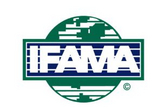
India’s poultry revolution: implications for its sustenance and the global poultry trade
Hellina, Jon / Vijesh V. Krishna / Olaf Erenstein / Christian BöberExterne Publikationen (2015)
in: International Food and Agribusiness Management Review 18, Special Issue, 151-164
As one of largest emerging economies, the Indian poultry market has wide-ranging implications for global poultry production and trade due to its sheer size, national market and rapid structural growth. Availability of low-priced, high-quality feeds is critical in order for domestic poultry production to remain competitive and meet growing consumer demand. Production of maize, which is a predominant feed component in poultry industry, has surged in India. With average Indian maize yields lagging world and Asian averages, there are significant maize intensification opportunities to produce even more and cheaper feed, including increased use of higher-yielding (and higher-quality) maize hybrids and associated private- and public-sector investments. Given the size of the India’s poultry sector, its price competitiveness and Indian entrepreneurship, India is set to take a more active role in the global poultry trade especially with respect to exports to the Middle East.

